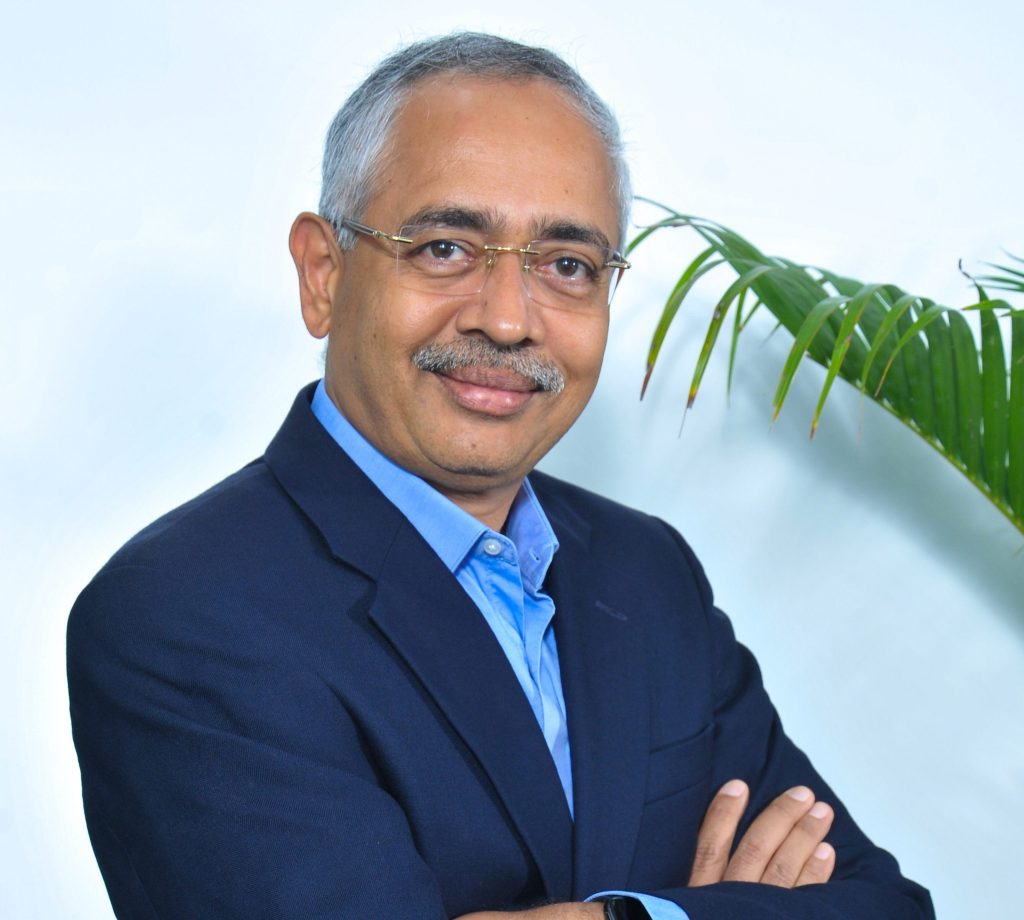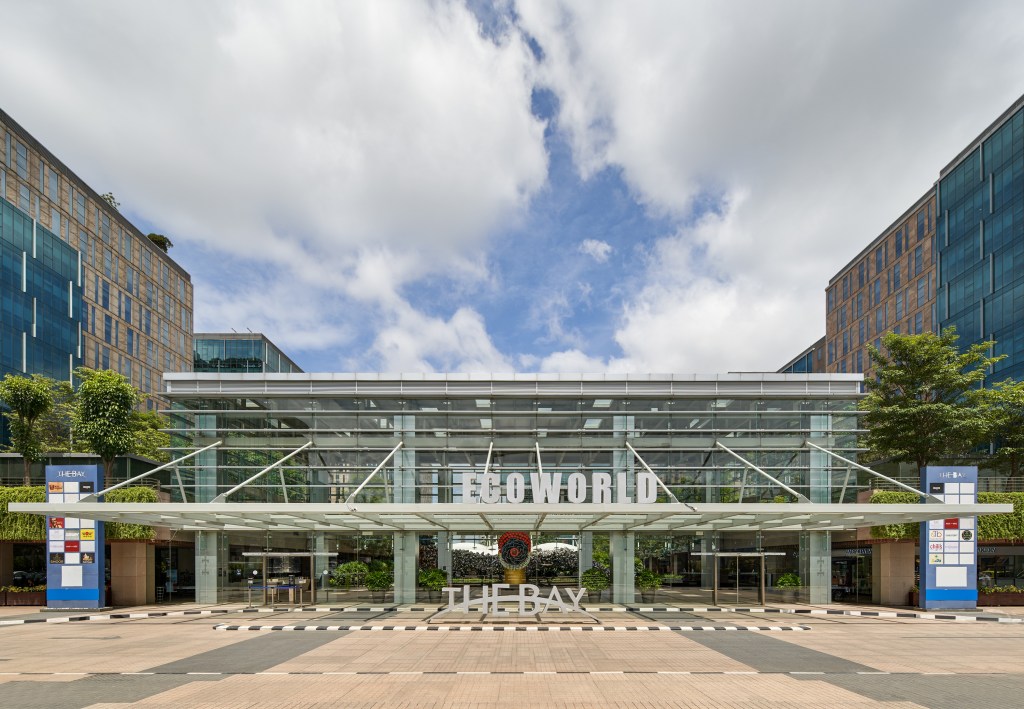When Venkataraman Ravikumar became Danaher’s Vice President of the India Development Center (IDC) two years ago, IDC contained seven operating companies (OpCos). Now there are 14. Below, Ravi discusses his experience and philosophy as a software technology leader, what brought him to Danaher, and the opportunities for growth and career development associates will find at IDC.

I’m a geek. A hardcore, bona fide geek. Problem-solving is what gets me excited, which is why I became an engineer. I grew up in India and earned my undergraduate degree here, then I went to the U.S. to Northwestern University for my Ph.D.
After Northwestern, I joined GE’s R&D group, where I worked for about 20 years, mostly in the U.S. In the late ’90s, I came back to India to set up a small R&D group for GE, which is now its largest engineering facility. I did the same thing in China, Munich and Rio de Janeiro, so I was exposed to the globalization of R&D and became quite excited about multi-industry product design.
Throughout my time at GE, we used Danaher several times as case studies on how to understand mergers and acquisitions. I thought the company was fantastic at identifying organizations to acquire and having a very light touch maintaining the OpCos’ centricity of operations
and marketing while putting the Danaher Business System (DBS) of continuous improvement as a cultural element around it.
I decided to move to India in 2008 to lead a large engineering design team that used several of the DBS principles around policy deployment and problem-solving. Throughout this time, I continued to be interested in Danaher as an example of how to best problem-solve without ever knowing I would get an opportunity to work here.
Perfect storm
When Danaher reached out to me, it was like a perfect storm. I had an absolute fascination and admiration for the company, and they wanted me to look into strengthening their global R&D footprint in India.
The India Development Center started about eight years ago as a Beckman Coulter R&D group. While it is housed under the legal entity of Beckman Coulter’s diagnostics focus, Danaher took governance of the IDC about two years ago, which is when I joined. Danaher’s desire to grow its footprint didn’t just mean the number of OpCos or its headcount. The company wanted to grow its impact, and I think my background and experience were the reason they brought me on to help achieve those goals.

Leadership approach
Over the years, I’ve developed my leadership philosophy, which has three parts to it. First, I’m very big on authenticity, especially in a virtual or hybrid environment. If your authenticity doesn’t come through, it’s hard to get buy-in. It’s hard to get folks to agree with your thought process.
The next is purpose. There has to be a purpose aligned with your growth plans. Or, your transformation ideas need to be aligned to the purpose of the organization. Can you tap into the purpose of your colleagues? How do you nurture them? How do you help them grow? The work we do here has such a positive health effect on society and there’s a great opportunity to accentuate that purpose, which I’ve seen as a driving force at Danaher.
The last one is communication, which seems simple, but it’s very hard. This was probably the biggest struggle during COVID-19, since it’s much more difficult to communicate when you’re not face to face. I try to emphasize understanding what the expectations are and communicating how we are meeting those expectations. That’s how I’ve seen leaders I admire operate.
Unified ecosystem
One of the unique selling points for someone coming into the India Development Center at Danaher is the ecosystem. While you will be hired by one of our 14 operating companies, everything is under the same Danaher ecosystem. We have put together a governance methodology, so all of the operating companies have a seat at the table. This allows us to synchronize on the commonality of people’s agendas, the associate value propositions and the internal fill rate. We discuss how to build careers, as well as how to build systems and processes related to policies that are standardized across multiple operating companies.
Regardless of the operating company you are in, our IDC policy remains consistent. Our compensation philosophy is aligned and singular, and we talk about technology in India as a single entity. Therefore, anybody can consider and put their name in the hat for any opportunity that becomes available across different technology OpCos in India. At IDC, career growth cuts across Danaher and cuts across the 14 operating companies.
People bring their ideas from other OpCos with them, so there is a lot of cross-pollination. There are no walls. Anybody can stand up and wave, and they’ll be able to see me. While we have 14 different email tags, we are part of one large cafeteria. This Saturday, in fact, we have a family day, and about 1,800 people are going to show up—associates and their families.

Value propositions
When it comes to our associate value propositions, the first one centers on obvious elements around compensation, work-from-home benefits and health insurance coverage. That’s the easy part. These go back to the consistency of the Danaher ecosystem I mentioned.
The second value proposition is career development, which also has multiple facets. For example, we partner with Udemy, so every associate here has a license and they can get as many certifications as they want across any course Udemy offers. Given that we are in the field of software development technology, the tech stack changes every quarter. It’s a fast-moving cycle. Our partnership with Udemy provides associates with continuous learning, certification and opportunity for career growth.
Our Takshashila initiative, which gets its name from an ancient university in India, looks at technical core competencies, and we create a curriculum for people to get certified in that. Some examples we do through this university concept are things like testing, verification, validation, software development cycles and cybersecurity, which benefit all the operating companies.
The third associate value proposition is the ecosystem. Whenever a leader for any OpCo visits, there are opportunities for everybody at IDC to interact with them. This gives you the ability to network, and the ability to understand the industry and how the customers benefit from you across multiple platforms. This is unique to IDC at Danaher.
Beyond career development opportunities, I also think there is something important about a tangible impact on the society or ecosystem you live in. It’s exciting to amplify the purpose of realizing life’s potential. I’ve seen the spark in people’s eyes when you start talking about it. We can honestly say our tests save lives. Our tests help cure cancer. We can say that. It’s not fiction. It’s real. You’re part of something much larger than just your platform, and that motivates people.

Leave a Reply